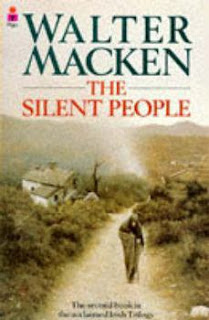This challenge is hosted by Gilion at her Rose City Reader blog. This is a challenge aimed at reading books from our TBR shelves. The idea is to read 24 books in 2024, which means one book for each year of the century. If you're interested, the sign-up page is HERE. Oh, you want to know what "TBR" means? To Be Read, books you have on your shelves, but still need to read.
Gilion says we don't have to decide when we sign up, so I won't try to guess which 24 (or more) books I'll read from here forward. But here are a few possibilities from what I once called my Teetering Towers of TBR Books (I've had the first one since 1976):
1. Window to the Past: Exploring History through ESP ~ by Hans Holzer, illustrated by Catherine Buxhoeveden, 1969, history, 247 pages
2. The Way to Rainy Mountain ~ by N. Scott Momaday, illustrated by Al Momaday, 2019, Native American literature, 104 pages
3. House Made of Dawn ~ by N. Scott Momaday, 1986, 2018, historical fiction, 224 pages
4. The Way to Rainy Mountain ~ by N. Scott Momaday, illustrated by Al Momaday, 2019, Native American literature, 104 pages
5. To Love As God Loves ~ by Roberta Bondi, 1987, religion, 111 pages
6. The Gospel of Thomas: Discovering the Lost Words of Jesus ~ by John Dart and Ray Riegert, introduction by John Dominic Crossan, 1998, religion, 122 pages
7. I and Thou ~ by Martin Buber, 1923 (translated and with a prologue by Walter Kaufmann, 1970), philosophy, 185 pages
8. Our Town: A Play in Three Acts ~ by Thornton Wilder, 1938, (Foreword by Donald Margulies, 2003; Afterword by Tappan Wilder, 2003), drama classic, 204 pages
9. One God: Peoples of the Book ~ edited by Edith S. Engel and Henry W. Engel, 1990, religion, 146 pages
10. The Teacher of Warsaw ~ by Mario Escobar, 2022, historical fiction, 368 pages
11. Girl Country ~ by Jacqueline Vogtman, 2023, short stories, 200 pages
12. In the Image ~ by Dara Horn, 2002, fiction, 302 pages
Word of the Day
duvet (doo-VAY) = A duvet is usually called a comforter or (down-filled) quilt in American English. It is a type of bedding consisting of a soft flat bag filled with either down, feathers, wool, cotton, silk, or a synthetic alternative, and is typically protected with a removable cover, analogous to a pillow and pillow case. The term duvet is mainly British and is rarely used in the United States.
I wrote about duvets last year, HERE. And I posted a pun about the word HERE, that says: "My friends and I have named our band 'Duvet.' It's a cover band." But why am I talking about that word now?
A few days ago, as I was going toward the elevators to go home, I passed a group of folks I know in the lobby. I had not heard anything they were talking about, but one woman turned to me and said something about a "duvet." I frowned, trying to figure out, "What about it?" She took it differently, though, and said, "I'm glad somebody else doesn't know what a duvet is!" And she laughed at those around us. I wanted to say, "But I *DO* know what a duvet is! I have one on my bed upstairs, as a matter of fact." I chose not to say those words, even though her remark left all of them assuming I had no idea what a duvet is.
Looking at it from the peaceful and caring point of view, I could have saved myself from looking like I didn't know the word by making HER look dumb and feel worse. I walked away, even though I hate looking stupid, too, so I knew how she felt. Saying nothing can be "words of peace" (peace in Hebrew is "shalom"). If I had "taken sides" and said I knew it, that would have made her feel even worse. So I chose to say nothing. (By the way, I know she does not read my blog and won't see this.)
Bloggers gather in the Sunday Salon
to share what we've read and done during the week.
Deb at Readerbuzz hosts the Sunday Salon

















































